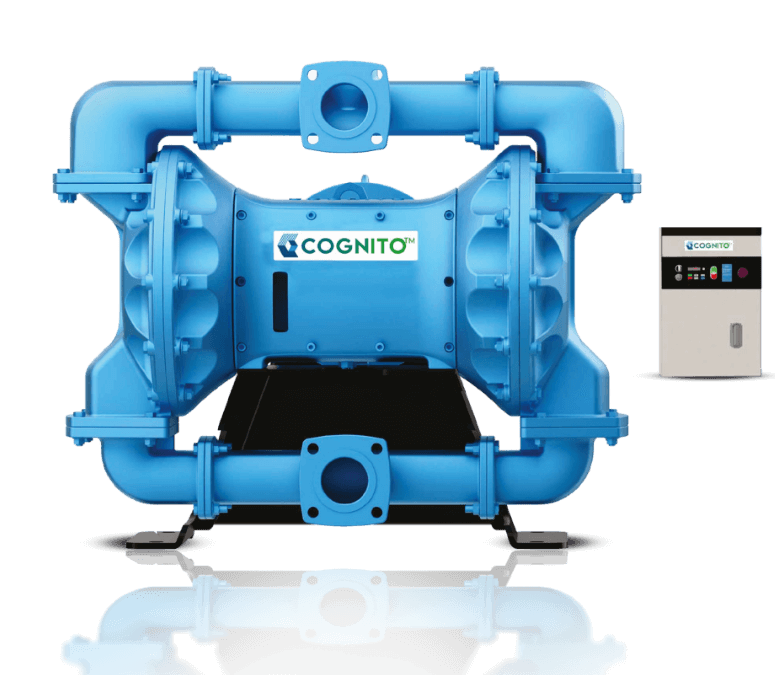Understanding Electrically Operated Diaphragm Pumps: Functionality and Applications
 |
| Understanding Electrically Operated Diaphragm Pumps: Functionality and Applications |
Electrically
Operated Double Diaphragm (EODD) pumps operate via a back-and-forth movement of two
diaphragms (a flexible membrane typically made from materials like rubber,
Teflon, or thermoplastic), which results in the movement of the fluid. These
pumps serve several industries, including ceramics, sanitaryware, paints &
dyes, metals & mining and oil & gas. They are known for their
performance, reliability, ability to handle many fluid types, and superb
resistance to harsh conditions.
First,
here is a little bit about how EODD pumps work. To explain it to a layman, an EODD pump focuses on the following
mechanism:
Suction
stroke – Imagine a
closed pump body. Now, imagine the first diaphragm moving backwards. This
movement creates a vacuum, which helps draw fluid into the pump chamber through
an inlet valve.
Discharge
stroke – Now imagine
the diaphragm moving forward while putting pressure and forcing the fluid out
of the pump body through an outlet valve. That is the discharge stroke for you.
What
moves the two diaphragms is an electric motor, an AC or DC motor, to be
precise, which eliminates the need for a conventional air compressor. This
motor is connected to a gear system to convert rotational motion to a
reciprocating motion. It is this reciprocating motion that allows for a
controlled and precise diaphragm movement.
EODD
pumps are preferred over other pumps for several reasons, including the
following:
They
are self-primed -
EODD pumps are motor-driven and can operate even when no fluid is sucked in.
The capability to operate in dry run conditions makes EODD pumps an excellent
choice for applications which handle inconsistently supplied fluids.
They
are energy-efficient -
EODD pumps do use electricity. However, they judiciously consume electricity,
making them an energy-efficient choice.
They
offer precise flow -
The motor that powers both the diaphragms of an EODD pump can be adjusted for
speed, allowing for a controlled, accurate flow control.
They
create less noise -
Unlike AODD pumps, which generate a lot of noise during operation, EODD pumps
are quieter.
Because
of all the benefits we just discussed, EODD pumps find their place in several
industries, such as:
Chemical
processing -
EODD pumps are made of robust, corrosion-resistant materials and have a
leak-proof design. This makes them ideal for chemical industries where
aggressive chemicals and acids must be transferred.
Food
& beverage industry - EODD pumps do not just ensure hygienic fluid transfer for products
like syrups, dairy, and beverages, they also, via precise flow, provide the
final consistency of the product.
Oil
& Gas -
Since EODD pumps can handle high-viscosity fluids, slurries, and hazardous
substances, they are ideal for refining and drilling operations.
Water
and wastewater treatment - EODD pumps, with their precise flow and leak-free performance, are
also suited to pump sludges, chemicals and wastewater efficiently.
Cognito
Pumps – Built to
transfer the world's most challenging fluid transfer applications
In
collaboration with Warren Rupp, Inc., a global leader in diaphragm pump design,
Cognito has been supplying world-class advanced EODD pumps for more than 30
years. The brand has won several awards, including the latest for Most
Innovative Energy Saving Product by CII 2023-24.
The
USP of Cognito's pumps is their patented diaphragm with a larger diameter and
shorter stroke. The combination of the two gives Cognito EODD pumps an extended
lifespan. Cognito EODD pumps also feature a hardened seat which lasts for
years. Cognito EODD pumps rely on secondary static seals that prevent any fluid
contact to offer a leak-free operation. Additionally, the leak detector can
communicate to the PLC to stop the pump in case of a leak. The pumps are
provided in two configurations – horizontal and vertical. This reduces the
pump's overall envelope size and allows customers to pick a configuration
adaptable to their applications.
Now,
let's dive into the industries and the various applications that have used
Cognito's EODD pumps and are really happy with them.
The
ceramic industry -
One of the main challenges faced by ceramic industry applications is their long
running hours which put a lot of pressure on traditional pumps. EODD pumps,
however, are up for the task as they are built for energy efficiency and
extended operations.
Paints
& Dyes industry -
Applications in the paints & dyes industry have to deliver high-quality
output without changing the product's look and feel. Cognito's EODD pumps
feature a gentle pumping action that prevents product degradation at all stages
of operation.
Metal
and mining industry -
Metal and mining industry applications can face downtime if the pump doesn't
have dry-run capabilities. Cognito's pumps can run dry without any damage and
handle solids and abrasive fluids without wear and tear, offering more extended
operation.
To sum it up, Cognito's EODD pumps can handle hundreds of fluids and are built for applications of all kinds. They are energy-efficient, and can handle high pressures and a range of temperatures. To know more about Cognito and its EODD pumps' portfolio, please visit their website: https://www.cognitopump.com/



Comments
Post a Comment